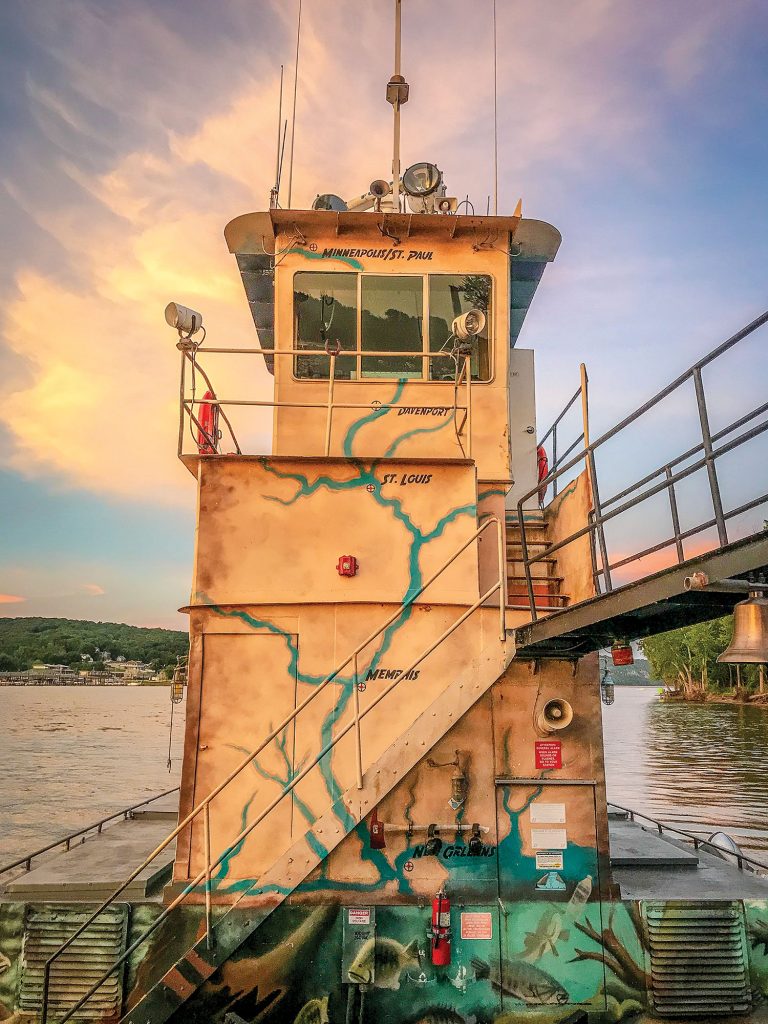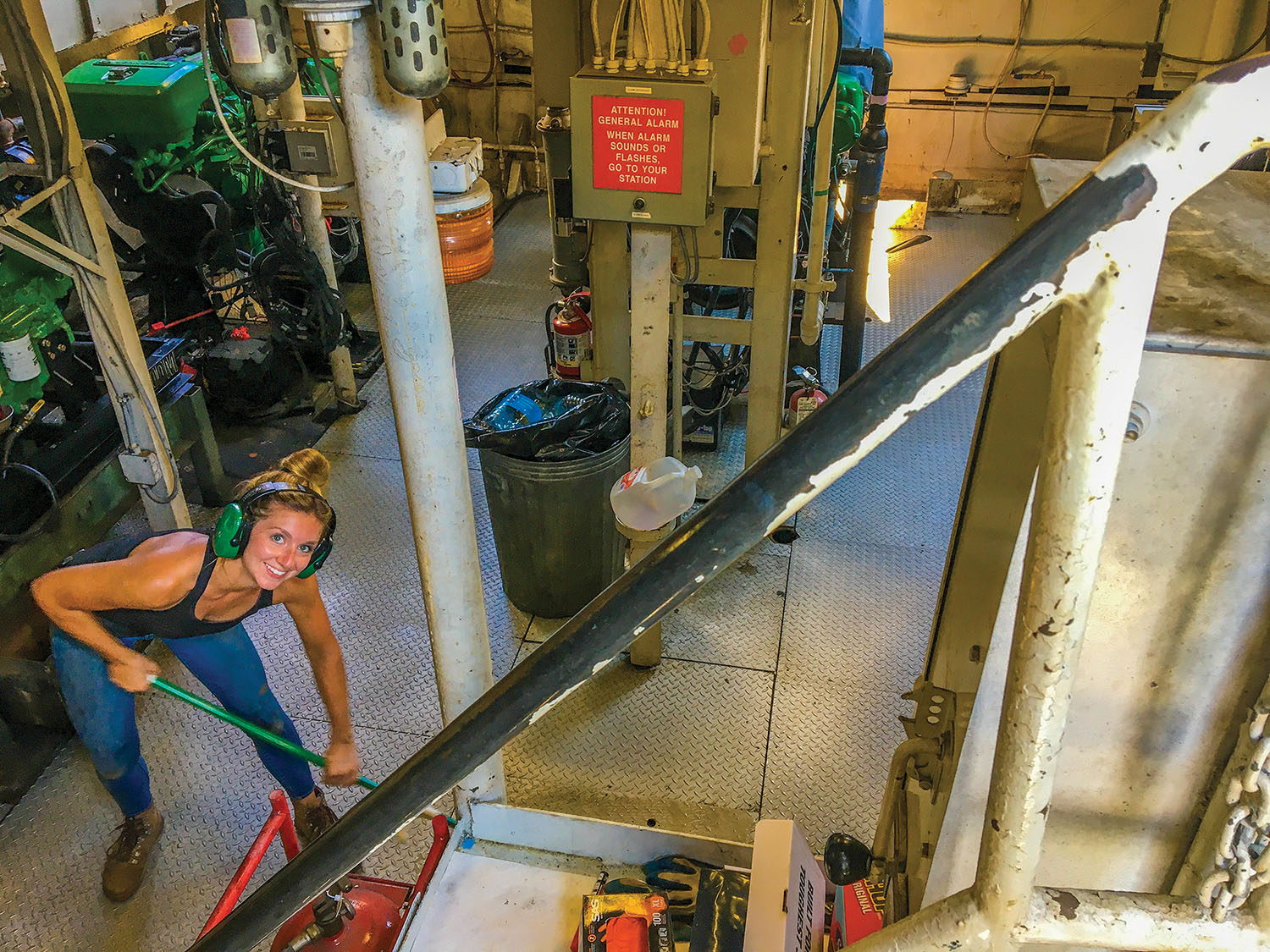The coronavirus has thrown some speed bumps into the river cleanup mission of Living Lands & Waters but has not been able to stop it.
This year, LLW began its year as usual with the Alternative Spring Break cleanup in Memphis, Tenn. It was slated to be the biggest such event ever, with more than 300 students from 16 colleges and universities helping with three weeks’ worth of cleanup on McKellar Lake.

“Unfortunately, due to the start of the COVID-19 lockdowns, the first round of students were pulled back to their home states,” said Leah Cafarelli, marketing director and program coordinator at LLW. Nevertheless, the students still managed to pick up 47,300 pounds of trash. After the students left, the LLW crew picked up an additional 10,473 pounds before heading back to LLW’s base in the Quad Cities area.
From March to May, LLW staffers usually harvest, wrap and deliver free trees for its MillionTrees Project. This year was the project’s biggest ever, despite not having troops of volunteers as in previous years, from Americorps and other agencies, due to coronavirus restrictions. “We were very short-handed with [the volunteers] this year,” Cafarelli said. “Even two-thirds of our crew were working from home every day.” The organization still managed to deliver 145,600 trees to 27 states, however.
The LLW crews have also participated in more than 100 crew-only (no volunteer) cleanups in 16 different locations on the Mississippi and Illinois rivers. “This year’s goal was to help clean up debris that the record-breaking spring flooding of 2019 brought to these areas’ riverbanks,” she said. They removed more than 66,000 pounds of garbage. “We hope to return to this project in the future when it’s entirely safe for our volunteers to join us on the river again!”
While the LLW’s floating classroom is temporarily out of action, LLW staffers have been creatively finding ways to provide environmental content via Zoom or open-air sessions conducted by teachers.
“Whether a teacher prefers a one-hour Zoom meeting, a home-friendly activity, an environmentally focused curriculum or an open-aired volunteer opportunity, we have something for everyone. In fact, we suspect [we will] reach a wider array of students in more locations than we typically would in one school year,” Cafarelli said.
Industry Support
Cafarelli gave a particularly appreciative shout-out to all the “in-kind” donations that have helped LLW stay afloat and continue its mission this year. “It’s pretty much out of our budget at the moment to move [LLW’s barge] under the power of our towboat, the mv. River Cleanup II,” Cafarelli said. “So receiving rides and fleeting services from ACBL, Artco, Wepfer Marine, SCF Lewis & Clark Fleeting and Upper Mississippi Fleeting has been a significant help.”
Cafarelli singled out Mike’s Inc. shipyard. “They helped us with every repair we needed at the last minute and even let us use their dock while we were getting everything ready for our Subchapter M inspection. It was a MAJOR help!”LLW’s fleet of vessels is currently parked at the house of founder Chad Pregracke’s parents in Hampton, Ill.—“where the journey began!” said Cafarelli. The boat hasn’t been this far up the Mississippi River in four years, she said. The crew is taking advantage of the slower year to paint the barges and perform maintenance to the house and equipment. They still have had time to plant hundreds of trees in Cedar Rapids, Ill., which recently faced a destructive storm.
This winter, the fleet plans to move back down to Memphis so the crew can pick up where it left off this spring. Cafarelli said she hopes to “leave all the 2020 vibes in 2020,” and adds, “but if anyone wants to give us a ride…”
Caption for top photo: Leah Cafarelli, program director for Living Land & Waters, helps clean up the engineroom of the River Cleanup II. (Photo courtesy of Living Lands and Waters)




